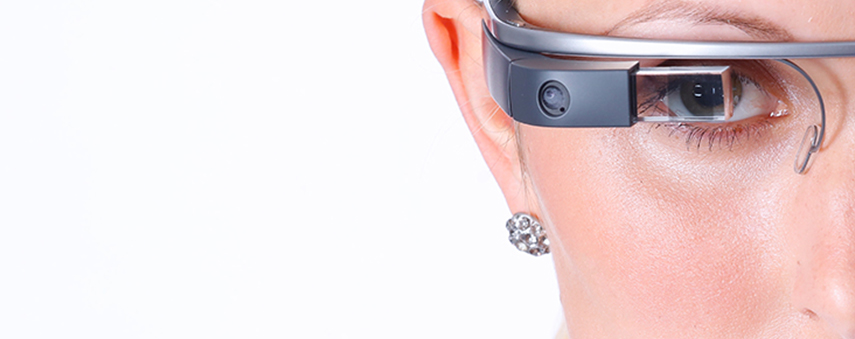5 Intriguing ways movies and TV shows predicted tech

For decades, technology lying just beyond our reach has been imagined and used in our most beloved movies and television shows. Some of it has defied all logic, some of it has been downright ridiculous, but every so often their predictions come true.
1) Bionic implants

In the 1970s, there was no shortage of tech predictions on television screens. Star Trek, Battlestar Galactica and Buck Rogers all threw their hat in the ring when it came to bold, far-future sci-fi predictions. However, The Six Million Dollar Man hit on a more grounded and plausible vision by predicting bionic implants.
Now, some 40 years later, companies such as Open Bionics and Touch Bionics are creating fully functioning, affordable prosthetics. Artificial intelligence, 3D printing and nano-technology are all used in conjunction to mimic touch, sensitivity and pressure.
2) Autonomous robot insects

Black Mirror, famous for its darkly disturbing vignettes of a twisted future, is more often known for its satirical takes on current tech. It tends to take existing snapshots of society (and the tech we currently use) magnifying them to almost cartoonish levels, cloaking them in eerie, uncanny darkness. The tech feels familiar, but it’s not quite the same.
In one episode, Hated in the Nation, a swarm of autonomous drone bees originally designed for good intentions are hacked and manipulated to kill people. Now, scientists and engineers are developing drone insects to assist in pollinating regions which severely lack in insect populations. Unlike the murderous bees in Black Mirror, The DelFly Nimble, created by Matěj Karásek, will likely be used for its intended purpose. Well, we can only hope.
3) Optical wearables

It may come as no surprise, but the ‘Virtual Display Device’ wasn’t the only time Star Trek predicted the future of tech. From tablets to virtual reality, and voice activation to 3D printers, Star Trek set a precedent when it came to technological prophecy. Seen in numerous episodes of Deep Space Nine, the device bears an uncanny resemblance to Google’s wearable, Google Glass.
Released in 2013, the smart glasses have failed to live up to expectations. However, Google is now refining the product with Enterprise Edition 2, which uses the Qualcomm Snapdragon XR1 platform. Other companies, like eMacula, are also developing their own take on enhanced retina technology, including smart contact lenses, to blend digital and physical spaces like never before.
4) Tablets

2001: A Space Odyssey is a sci-fi classic. It predicted numerous technological innovations, including HAL 9000, an AI assistant. However, one that really sticks in the mind is its prediction of the tablet. The scene looks all too familiar to us now. Dr Bowman is sitting eating dinner while watching videos on a glass slab laying on the tabletop beside him.
Made popular by Apple with the release of the iPad, the tablet was imagined and popularised all the way back in 1968, becoming a staple of science fiction movies and television thereafter.
5) Holograms

5G is on the horizon and with it comes (among other things) improved connection speeds. It will allow for vehicle-to-vehicle communication, a more accessible and refined VR experience, and an overall boost to IoT. Some have even predicted the introduction of holographic video calls, much like those beamed from R2D2 in Star Wars. Three-dimensional visual projections sound like a gimmick, but they could be used in a number of other effective ways.
In the healthcare sector, 3D models could be used to spot disease or illness, architects or engineers could generate entire developments in the palm of their hand, and realtors could use AR to sell houses. If holograms sound like antiquated tech, it’s only because they have been a staple of science fiction for decades, but we’re only just on the verge of seeing them at their full potential.
